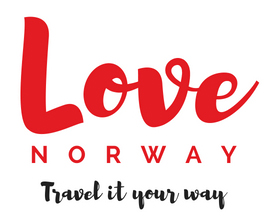We’ve distilled some of the essential information for travellers in Norway…
Currency
Norwegian currency is the Norwegian Kroner, often denoted as NOK or –Kr. It is a good idea to carry a small amount of cash and some loose change, but Norway is becoming increasingly cash-free. UK debit and credit cards are accepted as payment for most things including parking meters and public transport.
Language
Norway is a country with three languages of its own and many, many dialects. But luckily for tourists, Norwegians usually speak impeccable English. To prepare for your trip, we advise taking to the internet and brushing up on a few simple words, such as: hei hei (hello), ja (yes), nei (no) and takk (thank you). The Norwegians are always very appreciative if you take the time to try.
Health services
Norway has an excellent modern health service; however, you should make sure that you have adequate travel insurance, especially if you intend to partake in sporting activities (and check your sport is covered by your travel insurance company). EU citizens should take their EHIC as Norway is a part of the European Economic Area.
Doctors
During standard opening times it should be possible find a normal doctor in the area where you’re staying. Outside of opening times, and for medical attention that does not require an ambulance, you can contact Legevakt (a walk-in clinic for urgent care) on 116 117. For anyone over the age of 16 it may be necessary to pay a contribution depending on the level of assistance required.
Pharmacy
In Norway a pharmacy is called an Apotek and is identified with a white cross on a green background. Typically they will be open during normal shopping times, meaning they are likely to be closed on a Sunday.
Emergency numbers
- Fire and major incidents 110
- Police and rescue co-ordination centre 112
- Ambulance medical emergencies and major incidents 113
Flights
Norway is easily accessible from the UK with direct flights taking around two hours from major London airports, using carriers such as Norwegian, British Airways and SAS. Direct flights are also available from other airports such as Manchester, Edinburgh and Aberdeen. Alternatively most UK airports offer indirect flights via European hubs such as Schipol (Amsterdam) and Copenhagen (Denmark). The main airports in Norway are Oslo and Bergen and they both provide good access to other Norwegian towns.
Buses
In Norway buses are an excellent way to move around, enabling you to relax and take in the beautiful scenery. There are good bus connections between most major cities/towns and the standard is typically very high with a good rate of punctuality. Reservations on some routes can be made in advance and when compared to other forms of transport the buses tend to offer good value.
Trains
Travelling by train can be very practical, particularly during the winter season when roads may be closed due to bad weather. Trains should be booked early as they are often ‘seating only’ and availability may be limited during the main tourist season. As with buses, the trains can offer excellent value.
Road trips
Norwegian roads are among the safest in the world. There is strict enforcement of the driving laws and when these laws are broken they are usually penalised with a fine. Some important rules are listed below and a link is provided to help travellers who are planning on driving.
- Drivers must yield to traffic from the right hand side. Unless signs indicate otherwise, you must give way to any traffic entering your carriageway from the right (the exception is on major roads only, where speeds are above 60 km/h).
- Headlights are mandatory. 24 hours, all year.
- Pedestrians have the right of way, at all times. You will be expected to stop at zebra crossings and you will be heavily fined if you are caught breaking this rule.
- Don't drink and drive. The limit is 0.2% blood alcohol concentration, which is effectively zero tolerance.
Winter road driving
The Norwegian highway authorities are exceptionally good at clearing major roads of snow, but smaller roads in the mountains, especially up to ski resorts and cabins, are often covered by compact snow and ice. All Norwegian cars (including hire cars) are bound by law to use winter tyres over the winter months. If you intend to cross mountain passes you should check accessibility (see link below) or call the number(s) provided, which offer a comprehensive service in English as well as Norwegian.
Some high mountain passes may still be accessible during the winter, as the road authorities operate a convoy system. Please check with us before your holiday starts and ring the number below on the day you intend to travel, to check if this applies to your route. See also the link below, which instructs you on how to drive in a convoy system in Norway.
Telephone: +47 815 48 991 or 175 from within Norway
Check road accessibility in Norway >> ]
How to drive in a convoy in Norway >>
Alcohol
Norway has a relatively conservative attitude towards the purchase of alcohol. Supermarkets are only allowed to sell alcohol under 4.7% proof, which typically means lagers. AS Vinmonopolet is the state-run retailer that can be found in most major towns and cities; it sells all drinks over 4.7% proof. The sale of alcohol is only permissible until 6pm during the week and 3pm on a Saturday (or day preceding a bank holiday). Due to tax, alcohol that is purchased in hotels, bars and restaurants will typically be significantly more expensive than the average prices in the UK.
Customs information when travelling to Norway
The link below takes you straight to an English version of the Norwegian customs website and provides useful information on your basic rights as a tourist in Norway, including the all-important tax-free shopping!


